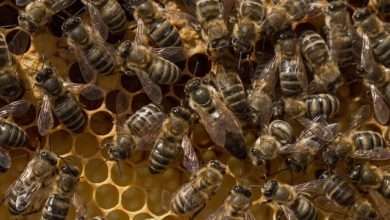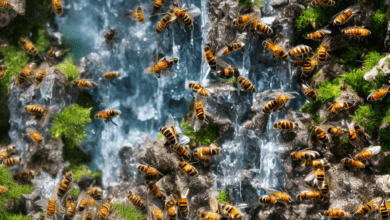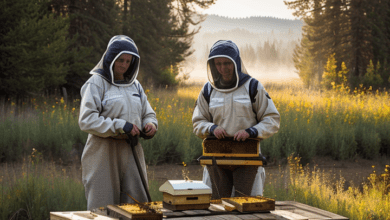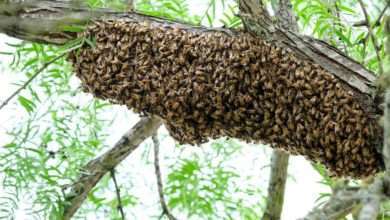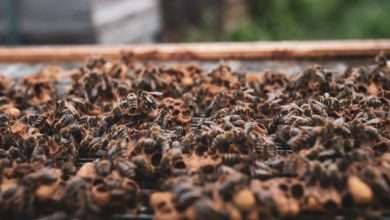Why Start Keeping Bees?
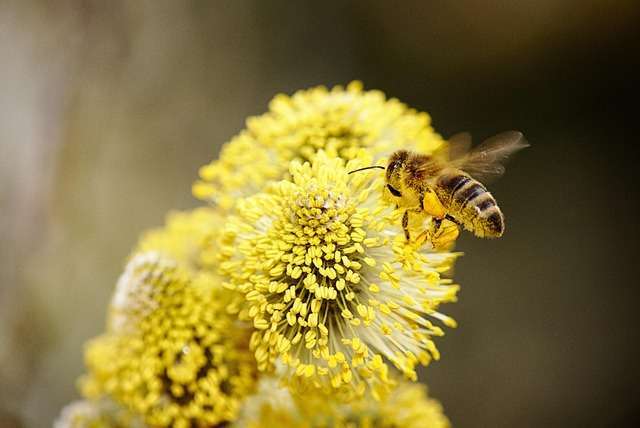
Beekeeping is a fascinating and rewarding activity that has fascinated people for centuries. For some people, beekeeping provides the opportunity to help protect important pollinators and conserve the environment. For others, beekeeping is a hobby and means to produce their own honey.
Whether you are interested in beekeeping to help the environment, have a hobby that fills you with satisfaction and pride, or just want to produce you own sweet, nourishing honey, there are many reasons why you should start beekeeping. In this article, we explain all the benefits of beekeeping and what you need to get started.
The Benefits of Beekeeping
1. Gardening and Pollination
Beekeeping can be an especially beneficial activity for gardeners, as the bees can help to more effectively pollinate your garden. As they fly, they pick up pollen from the flowers they visit, eventually dropping off the pollen at other flowers, aiding in their pollination.
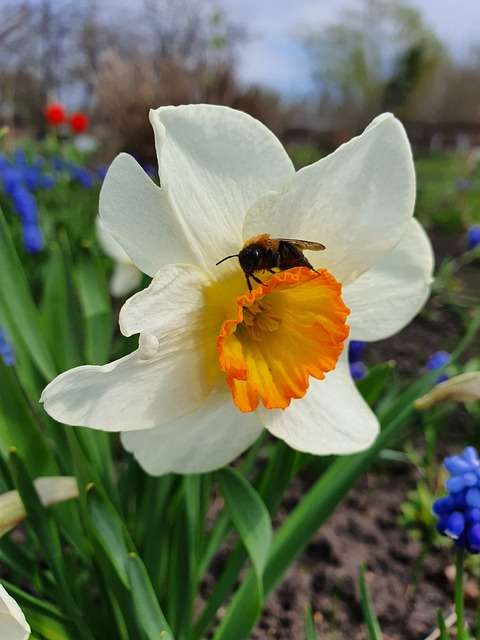
As one of the essential roles of bees is to pollinate plants, having bees around your garden can encourage healthy growth, improve yields and can even make plants more colorful. If you are looking to keep your garden blooming, beekeeping can be a great way to do so.
2. Enjoying Nature
Beekeeping is the perfect activity for nature lovers and those seeking a more intimate connection with the environment around them. Rather than simply viewing nature, beekeeping provides a chance for an interactive relationship with the local environment. Each step of the process, from setting up the apiary to managing your hive, gives you a closer bond to the natural world.
3. Producing Delicious, Nutritious Honey
One of the main draws of beekeeping is the opportunity to produce your own honey. Honey is an incredibly versatile food source, with different types used for various cooking and baking recipes, spread on toast and even consumed by a spoonful. It is not just the taste of honey that makes it so popular; the many health benefits of honey, such as its antioxidant and anti-inflammatory properties, make it a safe and nutritious food source.
4. Supporting Pollinators
Though bees are often a useful asset to gardeners, they also provide an essential service to the wider environment. As pollinators, bees work to distribute pollen among plants and flowers, allowing them to bloom and reproduce. Habitat loss, climate change and diseases have all put considerable stress on bee colonies and populations in recent years, so beekeeping can be a great way to contribute to bee conservation.
What You Need to Get Started with Beekeeping
Setting up your own beekeeping venture is easier than you might imagine, requiring only a few basic supplies. But before you put down money for any of the items you need, make sure you research and understand the local regulations for beekeeping.
Hive
- Hives are what will house your bees, providing safe shelter for them to grow and nest. Most beehives are constructed of wood, with versions designed for both beginning and experienced beekeepers. Make sure you purchase the correct type of hive, based on the species of bee you would like to keep and your experience. If you are just starting out, there are many affordable options available.
Protective Gear
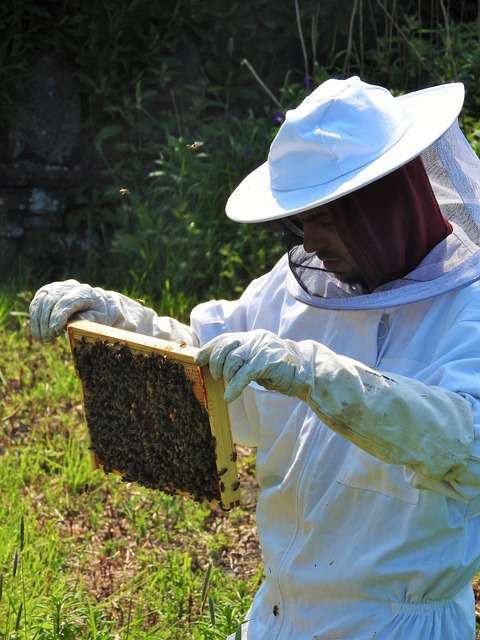
- Protective gear is essential for any beekeeper, ensuring you can work with the hive safely. It is composed of a veil, gloves and suit, with some more experienced beekeepers also using tools such as a smoking gun. While you are not obligated to use protective gear while in your apiary, it is always wise to do so and should be done when handling the hive directly.
Feeding
- Just like any other animal, bees need food to survive and, as the bees you will be keeping are unlikely to be self-sustaining, you need to provide them with some support.
- During the winter, honey from the hive can provide the bees with some much-needed sustenance, supplemented with an artificial source of food. Whatever source you choose, ensure you use it sparingly so as not to disrupt the bees’ sources of nurture.
Book
- Finally, every beekeeper should have an understanding of the basics of beekeeping. Fortunately, prospective beekeepers will find a plethora of resources on the subject, from educational books to beekeeping courses. As beekeeping requires a deep understanding of the subject, doing your research before getting started is paramount.
Conclusion
Beekeeping is an activity that has captivated hobbyists and environmentalists alike, offering the chance to connect more closely to the environment while helping to protect important pollinators. If you are looking for an interesting and capable hobby to take up, beekeeping could be an excellent choice. Plus, you even get the chance to produce some sweet, nutritious honey!
All you need is a hive, protective gear, food for your bees and an understanding of the basics, and you can be ready to start your own apiary!
FAQ
Can I start beekeeping as a beginner?
- Absolutely, beekeeping is a hobby that anyone can learn. With the right tools, knowledge and most importantly the love of bees, you can start beekeeping as a beginner.
How often should I check my beehive?
- It is recommended to check your beehive at least once a week during the active season. However, the frequency of checking may vary depending on weather, location and the size of your hive.
What is the role of a beekeeper in maintaining strong and healthy colonies?
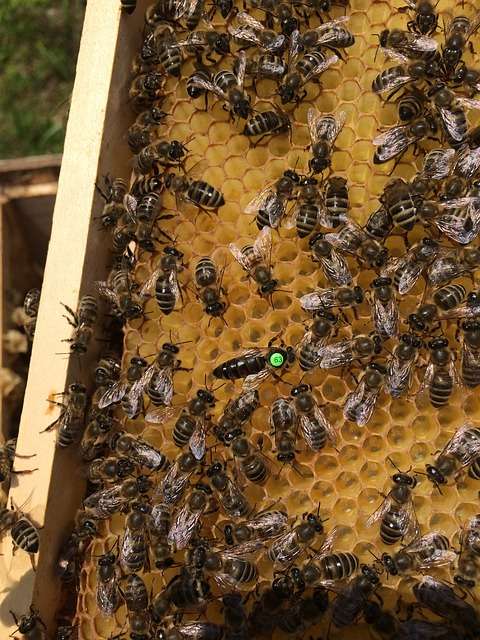
- A beekeeper has a crucial role in maintaining healthy colonies by providing adequate food, water, and medicine when needed. Regular monitoring of their health, population and cleanliness of hives is essential to ensure a fruitful beekeeping experience.
What is the lifespan of a beekeeping suit?
- The lifespan of a beekeeping suit is determined by the quality of the materials used, but with proper maintenance, it can last for several years.
How to avoid disturbing my bees while checking the hive?
- To avoid disturbing bees, avoid sudden movements, gentle inspection of hives and using a smoker to calm them. It is important to work in a calm and gentle manner to prevent angering bees.
How do I keep bees safe from predators?
- Keeping bees safe from predators involves placing hives in a secure area, and adding entrance reducers to keep out larger animals. Adding an electric fence can also keep away larger predators.
What kind of food should I feed my bees?
- Bees require a balanced diet of nectar and pollen. By planting various types of flowers and buzzing plants in the vicinity of the apiary, it ensures the bees receive a healthy and diverse diet.
